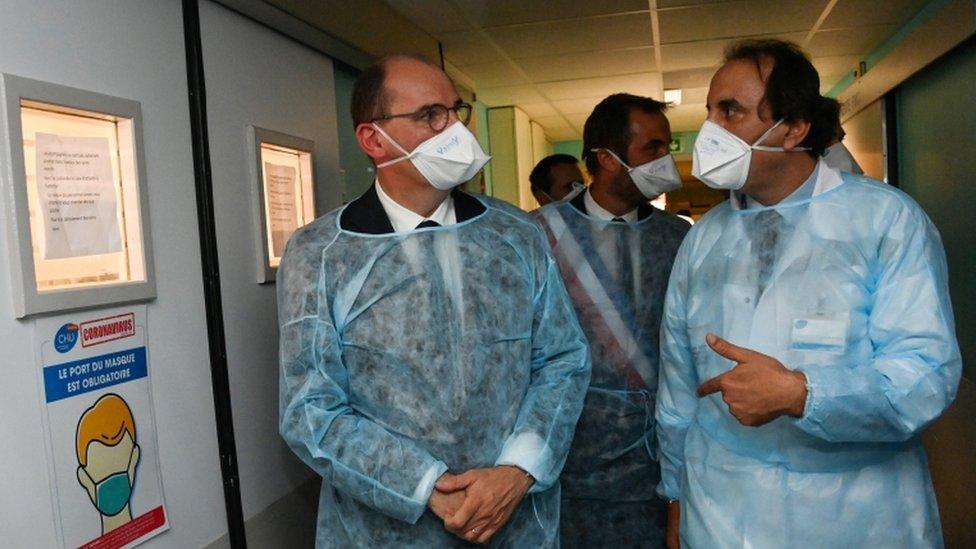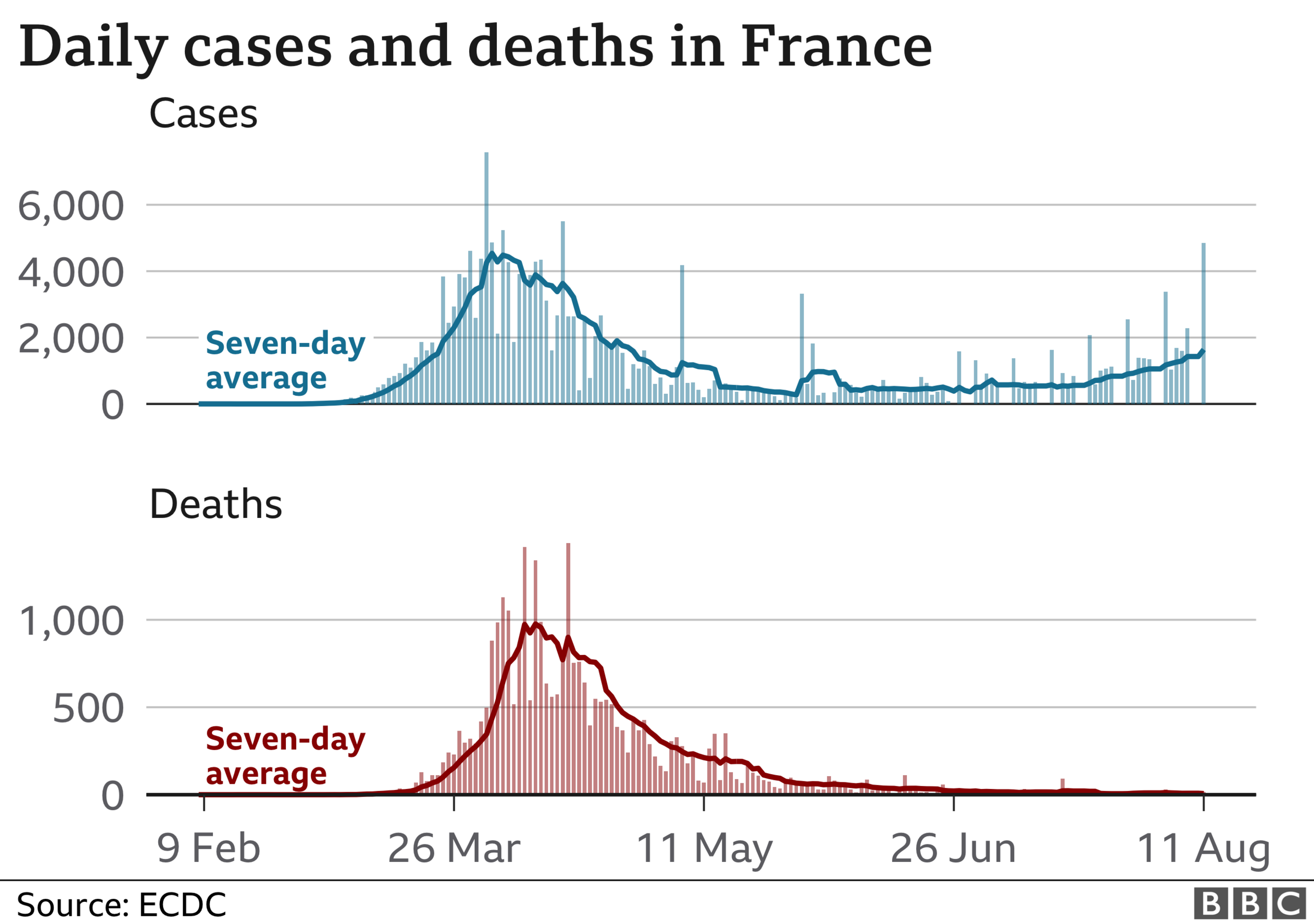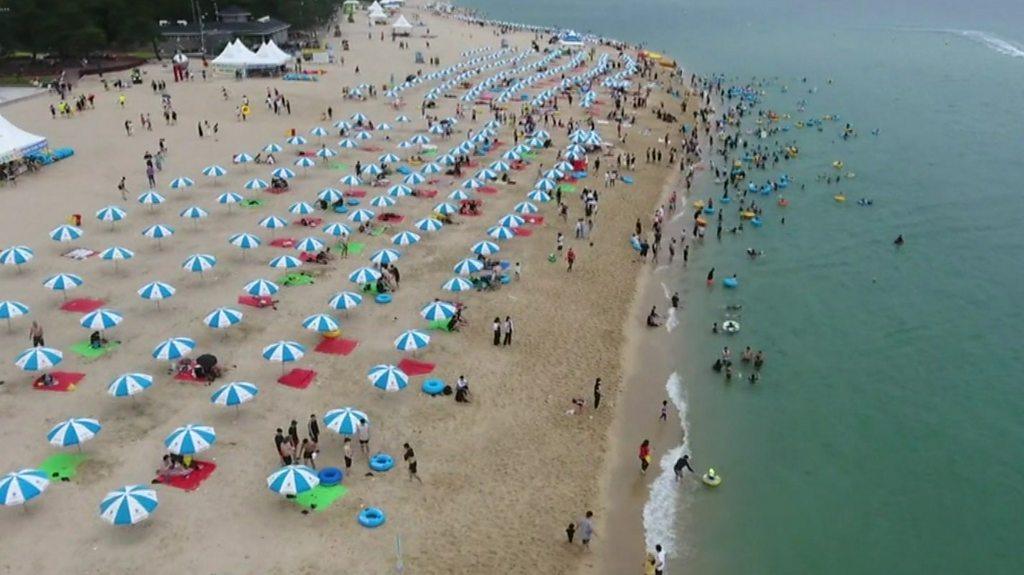Coronavirus: Cases surge as France goes 'wrong way'
- Published

French Prime Minister Jean Castex (left) made the dire warning in Montpellier on Tuesday
New coronavirus infections have nearly doubled in France in recent weeks as Prime Minister Jean Castex warned that the country had been going "the wrong way" for two weeks.
The health ministry reported 1,397 new infections of Covid-19 since Monday. Fourteen people have died.
A ban on meetings of more than 5,000 people has been extended to 30 October.
Mr Castex also asked local authorities to further extend the requirement to wear face masks in public.
"The epidemiological situation, which we are following very closely, is deteriorating: 2,000 new cases per day compared to 1,000 three weeks ago," Mr Castex said at a press conference in Montpellier.
"About 25 new clusters are identified every day compared to five three weeks ago," he added.
It is already compulsory to wear face coverings nationwide on public transport and in indoor spaces including shops and government offices.
Local authorities have the ability to impose mask-wearing and some have introduced it in outdoor spaces, including Paris tourist hot spots and the banks of the river Seine.
More than 30,000 people have already died from the disease in France, which experienced a significant wave of cases in March and April.


An additional 14 people have died since Monday, according to the health ministry.
Its death toll remains the seventh highest in the world, although it is far below the US and Brazil where more than 100,000 have died in each country, according to a tally by Johns Hopkins university.
Following a national lockdown, restrictions in France were eased in May and June and tourism permitted as the summer holiday season began and foreign visitors allowed.
Public gatherings of more than 5,000 people, including concerts or sports events, were due to resume at the end of August, but Mr Castex has extended the ban until 30 October.
At the weekend, more than 10,000 people attended an illegal rave in remote and sparsely populated mountain area Lozere in southern France.
How South Korea is trying to keep its beaches safe amid the coronavirus pandemic
Mr Castex said that unless people took action, the country would expose itself "to a high risk of epidemic resumption that will be difficult to control."
On Monday the health ministry reported that 10,800 new coronavirus cases have been identified in the past week.
The spread of the virus is particularly prominent among young people and in cities such as Paris and Marseille, it added.
What's happening in the rest of Europe?
Experts in Spain say the country has once again reached a "critical situation" with the worst infection rate in Europe. It reported an average daily rise of 4,923 cases during the last seven days, according to AFP news agency. The health ministry reports that there are currently 500 outbreak clusters nationwide. Spain was badly hit during a wave of infections in March and April, and more than 28,000 people have died from the disease.
Russia says it has developed a coronavirus vaccine that is approved for use after just two months of testing on humans. President Vladimir Putin said his daughter had already been given it. But the World Health Organization said it has not seen enough information about the vaccine to assess it and it would need more trials before going into production
The UK reported 1,148 confirmed new cases on Tuesday, which is the highest daily total since 21 June
Greece imposed a night-time curfew for restaurants and bars in popular tourist areas - venues will close between midnight and seven in the morning
The Latvian prime minister has urged residents not to travel even to 'safe' European countries, citing the rise in cases
- Published11 August 2020

- Published11 August 2020

- Published11 August 2020
